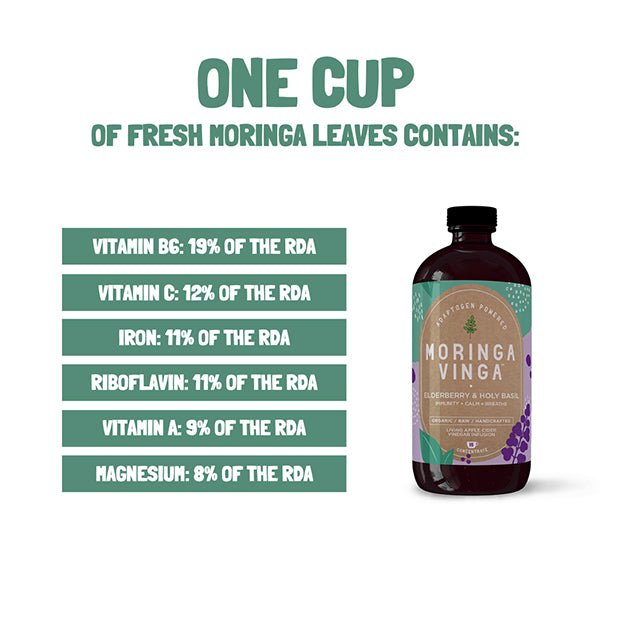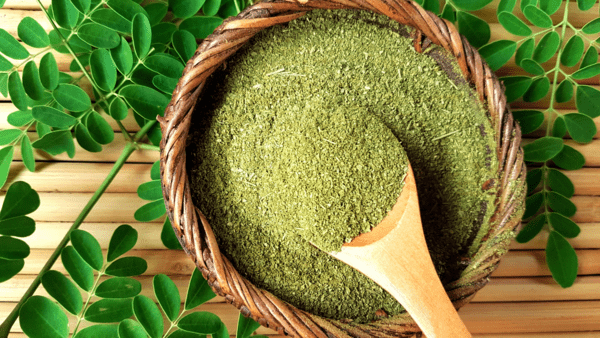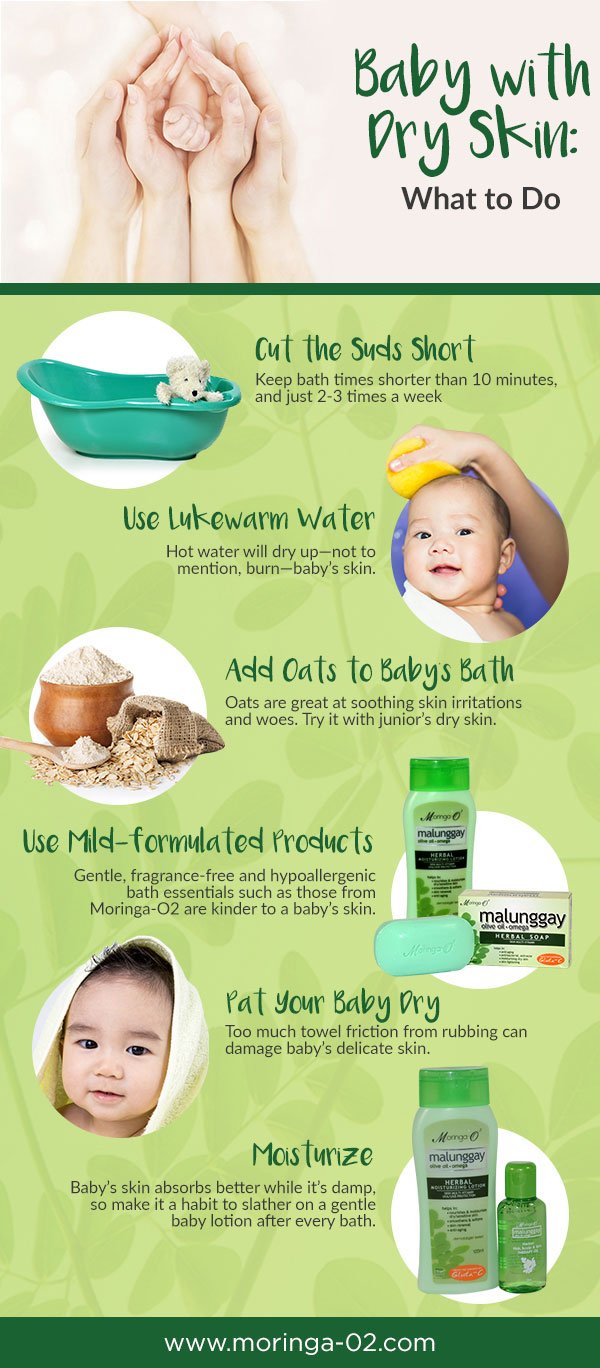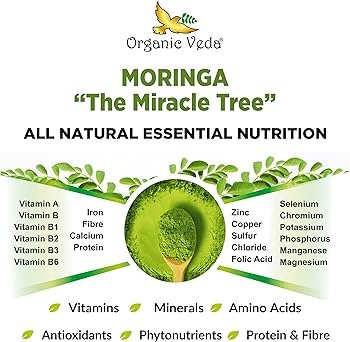What if you could boost your child’s health with a simple addition to their diet?
Understanding Moringa
Moringa, often hailed as a superfood, comes from the Moringa oleifera tree. This incredible plant is packed with nutrients, making it a popular choice for parents looking to enhance their children’s diets. You might be curious about how moringa can specifically benefit your little ones.
Nutrient Profile of Moringa
Moringa leaves are extremely nutrient-dense, containing a variety of vitamins and minerals essential for children’s growth and development. Here’s a closer look at what moringa offers:
| Nutrient | Content per 100g of Dried Leaves | Benefits for Children |
|---|---|---|
| Protein | 27g | Supports growth and muscle development |
| Vitamin A | 18,900 IU | Promotes healthy vision and immune function |
| Vitamin C | 220mg | Aids in immune health and iron absorption |
| Calcium | 2,003mg | Crucial for bone development |
| Iron | 28.2mg | Helps prevent anemia |
| Potassium | 1,118mg | Supports heart health and muscle function |
How Moringa Supports Growth
As a parent, you know how vital proper nutrition is for your child’s growth. Moringa provides a substantial amount of protein, which plays a critical role in building tissues and muscle. In a world where children sometimes refuse vegetables or protein-rich foods, moringa can be a game changer.
Important Vitamins and Minerals
The vitamins and minerals found in moringa are key players in your child’s development. Vitamin A is essential for vision and skin health, and children require it for cognitive development. Iron is another critical nutrient, necessary for the production of hemoglobin, which carries oxygen in the blood. By including moringa in their diet, you can help ensure they get these nutrients.
Immune System Support
Children tend to be exposed to various germs and viruses, especially in social settings like schools. Strengthening their immune system is crucial.
Antioxidant Properties of Moringa
Moringa is rich in antioxidants, which help combat oxidative stress in the body. Antioxidants are vital as they neutralize harmful free radicals that can damage cells and lead to illness. By bolstering your child’s immune system, moringa can help them fend off common colds and infections.
Vitamin C’s Role in Immunity
One of the standout components of moringa is its high Vitamin C content. This vitamin is pivotal in supporting immune function. Including moringa supports not just the immune system but also helps in the faster recovery from sickness, ensuring your child stays healthy for school and play.

Moringa and Energy Levels
Children are naturally energetic, but sometimes they can feel fatigued or low on energy. Moringa can be a natural way to boost your child’s energy.
Nutritional Boost for Active Kids
With its rich nutrient profile—including key vitamins and minerals—moringa serves as an excellent energy booster. The protein content helps sustain energy levels throughout the day. Combine that with its iron content, and you’re nurturing their stamina for all those activities and adventures.
How to Incorporate Moringa into Their Diet
You might wonder how to introduce moringa into your child’s meals. Here are some simple ideas:
- Smoothies: Add a teaspoon of moringa powder to smoothies. It’s easy to mask the flavor with fruits.
- Soups and Stews: Stir in moringa powder when making soups or stews.
- Nut Butters: Mix moringa into nut butter spreads for an extra nutrient kick on toast or sandwiches.
Mental Strength and Cognitive Development
Cognitive development is just as important as physical growth. Moringa can play a significant role here as well.
Supporting Brain Health
Moringa is not just beneficial for the body but also for the brain. The antioxidants present in moringa stimulate brain function and cognitive performance.
Benefits of Omega Fatty Acids
Another exciting aspect of moringa is its omega fatty acids. These fats are crucial for brain health, supporting memory retention and cognitive function. Including moringa can help foster your child’s intellectual pursuits.
Digestive Health
A healthy digestive system is vital for nutrient absorption and overall well-being.
Fiber Content in Moringa
Moringa contains a fair amount of dietary fiber, essential for maintaining digestive health. Fiber promotes regular bowel movements and prevents constipation, an issue that can be common among children.
Supporting Healthy Gut Flora
Additionally, the nutrients in moringa can help support a healthy gut microbiome, encouraging the growth of good bacteria and improving overall digestive health.
Addressing Fatigue and Sleep Issues
Are you finding that your child struggles with fatigue or sleep issues? Moringa might be able to assist.
Natural Sleep Aid
Moringa has been found to have calming properties that may help improve sleep quality. This is especially beneficial for active children who have trouble winding down after a busy day.
Balancing Stress Levels
With its numerous nutrients, moringa can also help manage stress levels, promoting emotional balance. When children feel less stressed, they’re more likely to enjoy restful sleep.

Managing Nutrition in Challenging Eaters
It can be a challenge to ensure your child is getting proper nutrition, especially if they are picky eaters.
A Nutrient Dense Option
For parents of picky eaters, moringa provides a small but powerful solution. Its nutrient density means that even small amounts can supply significant nutritional benefits. This allows you to fortify your child’s meals without having to force them to eat more.
Moringa Supplements
If whole foods aren’t an option because of your child’s preferences, consider moringa supplements. These can provide a convenient alternative, ensuring your child receives necessary nutrients without relying on large food quantities.
Possible Side Effects and Precautions
While moringa has numerous benefits, it’s essential to be mindful of potential side effects and the correct way to introduce it into your child’s diet.
Recommended Dosage
For children, moderation is key. If you’re considering adding moringa, start with a small amount, such as a quarter teaspoon of moringa powder, and gradually increase as tolerated. Always consult with a pediatrician, particularly if your child has underlying health conditions or is on medications.
Monitoring for Allergies
While moringa is generally regarded as safe, it’s vital to watch for any signs of an allergic reaction. Some children may react to new foods initially. Implement moringa into their diet one small step at a time and observe how they respond.

Emphasizing a Balanced Diet
While moringa can provide a wealth of benefits, it’s essential to remember that no single food can replace a balanced diet.
A Holistic Approach to Nutrition
Encouraging a diverse range of foods ensures that your child gets all the essential nutrients they need to thrive. Moringa should be viewed as a supplement to an overall balanced diet rich in fruits, vegetables, whole grains, and proteins.
Family Involvement in Nutrition
Getting your child involved in meal preparation can foster a positive relationship with food. Let them help in the kitchen, maybe by mixing in moringa into their favorite dishes. This involvement can enhance their willingness to try new ingredients and embrace healthy eating habits.
Final Thoughts on Moringa for Children
You may now see why incorporating moringa into your child’s diet can offer numerous benefits. From boosting immunity to enhancing cognitive function, this remarkable plant is truly jam-packed with nutrients that nurture your child’s growth and development.
Start Small and Build Gradually
Remember that every child is unique, so introducing moringa should be a personalized journey. Start small, monitor their reactions, and ensure that their experience with food remains positive. Making meals a fun and engaging experience will encourage healthy habits that last a lifetime.
Your Child’s Health Journey
As a caring parent, you always look for ways to enrich your child’s health and wellness. Moringa can be a small but significant part of that journey. With its array of benefits, it just might be the boost that supports their growth, energy, and well-being.
By making informed choices and nurturing a love for wholesome foods, you’re laying down the foundation for a healthier future for your child. Let moringa be one of the many tools in your toolkit while you guide your little ones toward a strong and vibrant life!

